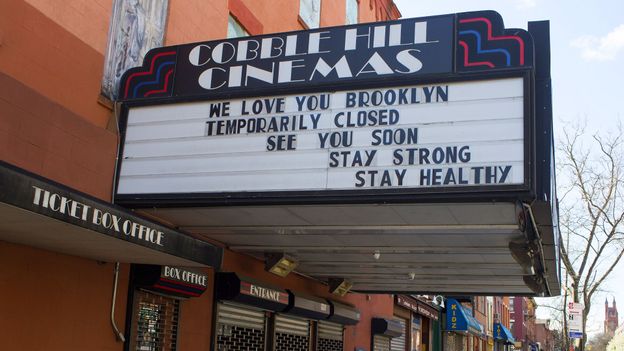Chinese theatres shuttered when the virus hit. In mid-March, an attempt to tentatively start opening cinemas again after the easing of the lockdown saw distributors refuse to release new films and audiences stay at home. Already, the almost 500 cinemas that tried to open have shut down again after receiving a letter from the government. Cinema-goers argued that it was too soon to open auditoriums and it was safer to watch films at home, especially when no vaccine for Covid-19 exists.
The situation is bad all over. In the UK, the popular Tyneside Cinema has started a donation campaign to ensure that it will be able to open its doors again. In New York, the world-famous Lincoln Center, home to the New York Film Festival, is one of many to serve redundancy notices as it faces a financial battle to keep going.
Compounding the misery for cinema owners is the fact that film studios have responded by putting films only very recently released in cinemas online. Last week, Disney made Pixar animation Onward available to rent on video-on-demand services, just over a month after its US premiere, while Universal have similarly uploaded The Invisible Man and The Hunt. And the same thing is happening with key indie films too: recent Berlin Film Festival award-winner Never Rarely Sometimes Always has also made the leap to streaming just a couple of weeks after its US opening. The consequence of all this is that studios may wonder why they’re sharing revenue with exhibitors if they can get a bigger cut by going straight to homes.
Indeed, while cinemas are on their knees, streaming platforms are profiting. Demand for home entertainment is so high that services such as Netflix and Disney + have announced they will reduce their picture quality in order to cut the data going to our homes by 25% so that the internet doesn’t get bottlenecked, slowing download speeds to a standstill.
But before we start imagining the liquidation signs going up at our local picture houses, it’s important to remember and celebrate how cinema has weathered societal storms throughout its history. Proclamations on the demise of the cinema have been a regular occurrence through the decades. And yet in 2019, the global box-office revenues from cinema were higher than ever.
How cinemas dealt with a past pandemic
A century ago, there was even the worry, as there is now, that cinemas would be permanently shut down by a virus. From 1918 to 1920, the so-called ‘Spanish Flu’ took the lives of 50 million people worldwide, coming right at the end of World War One, where 40 million died. When the flu hit, cinemas closed around the globe, although not quite in the same blanket way that they have today, with the decision on whether to close or not made by municipal governments in most countries.










